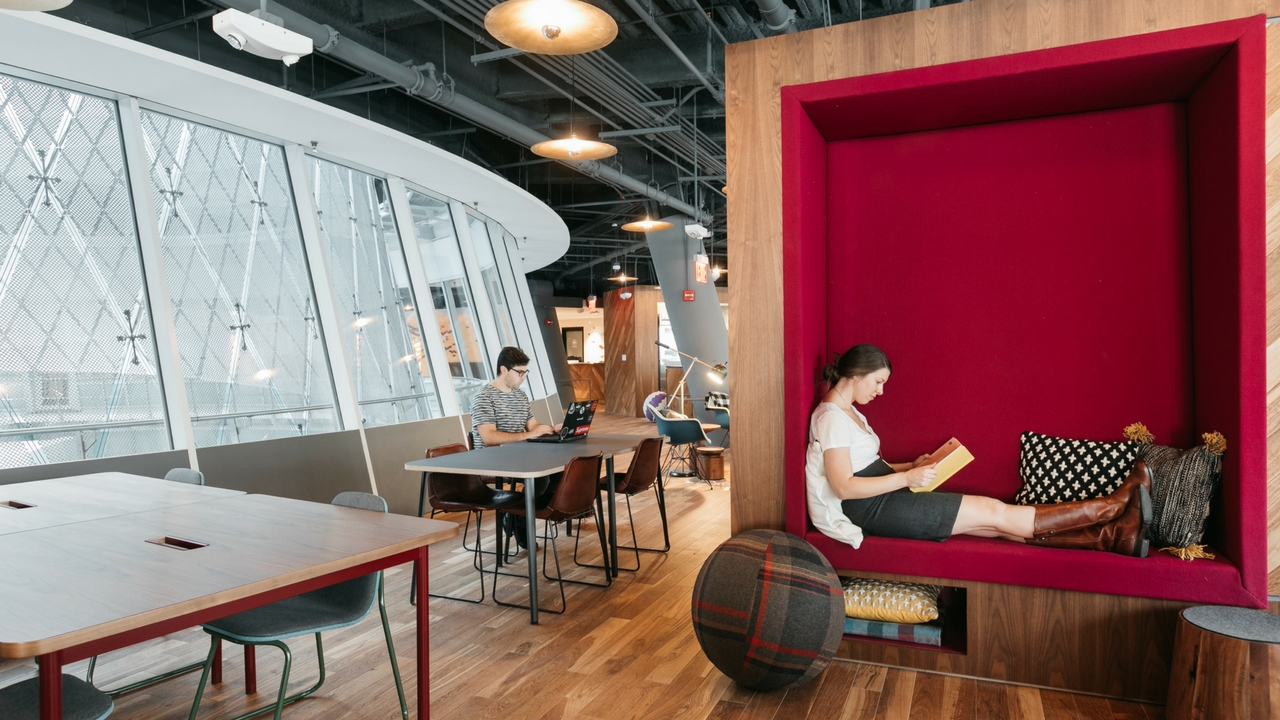- In 2011 WeWork ran an accelerator-like program, WeWork Labs, which was left unattended while the company focused on building its portfolio.
- This week, the program has been relaunched in New York City with plans to open a further 27 labs in 2018.
- WeWork Labs hopes to provide access to a “great educational network” for startups.
Over the past few years, WeWork has constantly been a source of news across the world. The coworking giant has grown exponentially, boasting today 212 locations in over 66 cities; it has also raised an astounding amount of money, taken its valuation to over US$20bn, acquired several companies including MeetUp, Flatiron School, and Wavegarden; launched a coliving business, launched a workplace management service, and entered the fitness industry.
As is the case with various startups, fast growth can sometimes come at a price. WeWork is no exception. Last year, WeWork seemed to be unable to control its own rapid growth, which led the company to have issues with employee satisfaction. But even before that, the coworking company had to make some strategic sacrifices in order to succeed and keep its focus.
In its early days (2011), before the multi-billion dollar valuation and the aggressive growth across global markets, WeWork used to run an accelerator-like program, WeWork Labs, which proved a successful program. However, as the company took off and started to add locations at a rapid rate, WeWork Labs was left unattended.
This week, WeWork announced it is relaunching the program, with 27 spaces secured in 16 markets for 2018, according to TechCrunch. WeWork Labs will reopen in WeWork’s new building in 205 Hudson in New York City, and the program will be run by Roee Adler, Chief Product Officer at WeWork.
Adler envisions Labs as a “long-term partnership with creators, one where they can join us (WeWork) at any stage of the startup process.” The program, according to Adler, is designed to be tailored to each startup’s individual needs and to provide them with the right tools to launch and grow their business; it’s also customized to the geographic location of each startup.
While there are no exact details of the program, WeWork Labs hopes to provide access to a “great educational network”. TechCrunch reported that Flatiron School, which was acquired by WeWork late last year (2017), “is currently working to build a portfolio of courses for new members, including accounting, finance and marketing classes.” Additionally, the program will offer mentorship, one-on-one sessions with experts, group sessions, lectures, conferences, and the like.
In order to grow the program and its reach, WeWork is hoping that all of its members, across markets and regions, will play an active role in WeWork Labs, either as vendors, mentors, or collaborators. WeWork is also planning on partnering with different accelerators and incubators.
“Incubator and accelerator programs are doing inspiring work, and we’re partnering with them in lots of different ways.
“But the truth is that not everybody can access these programs. There are many barriers to entry, including the fact that many startups aren’t far enough along yet. Our plan is to be there for them at the very earliest stages — before they’ve hired a first employee or drawn up a business plan. We can even help them prepare for an incubator or accelerator program, if that’s their plan,” Adler wrote on a recent blog post.
WeWork is also hoping to bring the program to startups all over the world, launching Labs in its upcoming locations in Delhi, Shanghai, Seoul, and Rio de Janeiro.



 Dr. Gleb Tsipursky – The Office Whisperer
Dr. Gleb Tsipursky – The Office Whisperer Nirit Cohen – WorkFutures
Nirit Cohen – WorkFutures Angela Howard – Culture Expert
Angela Howard – Culture Expert Drew Jones – Design & Innovation
Drew Jones – Design & Innovation Jonathan Price – CRE & Flex Expert
Jonathan Price – CRE & Flex Expert











